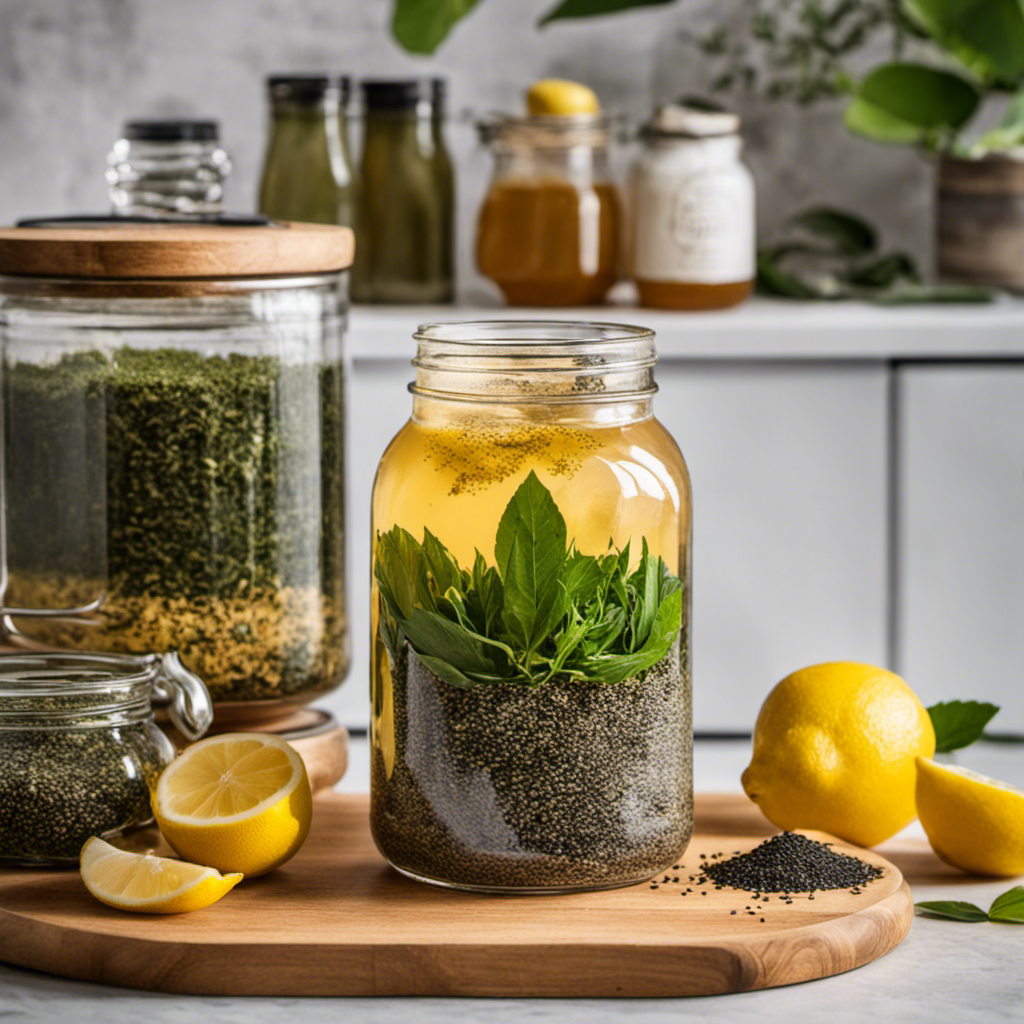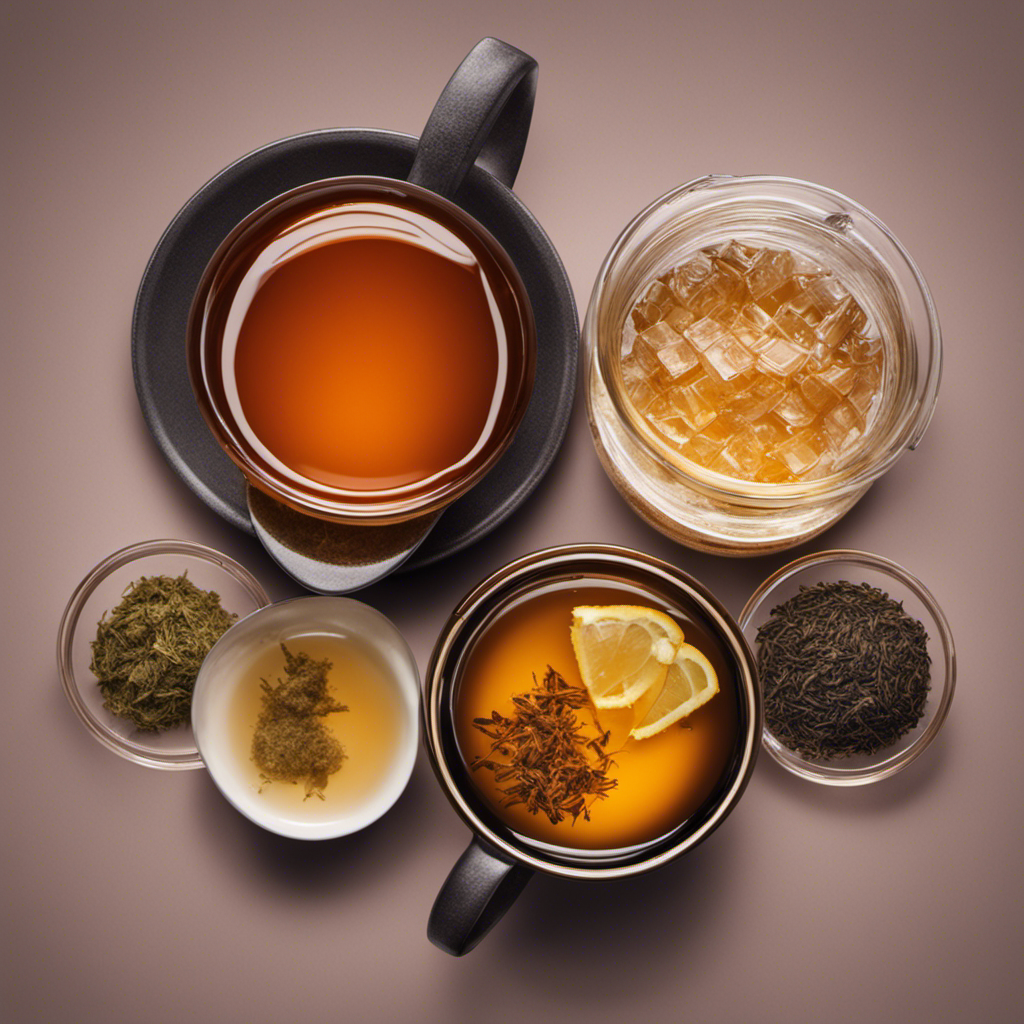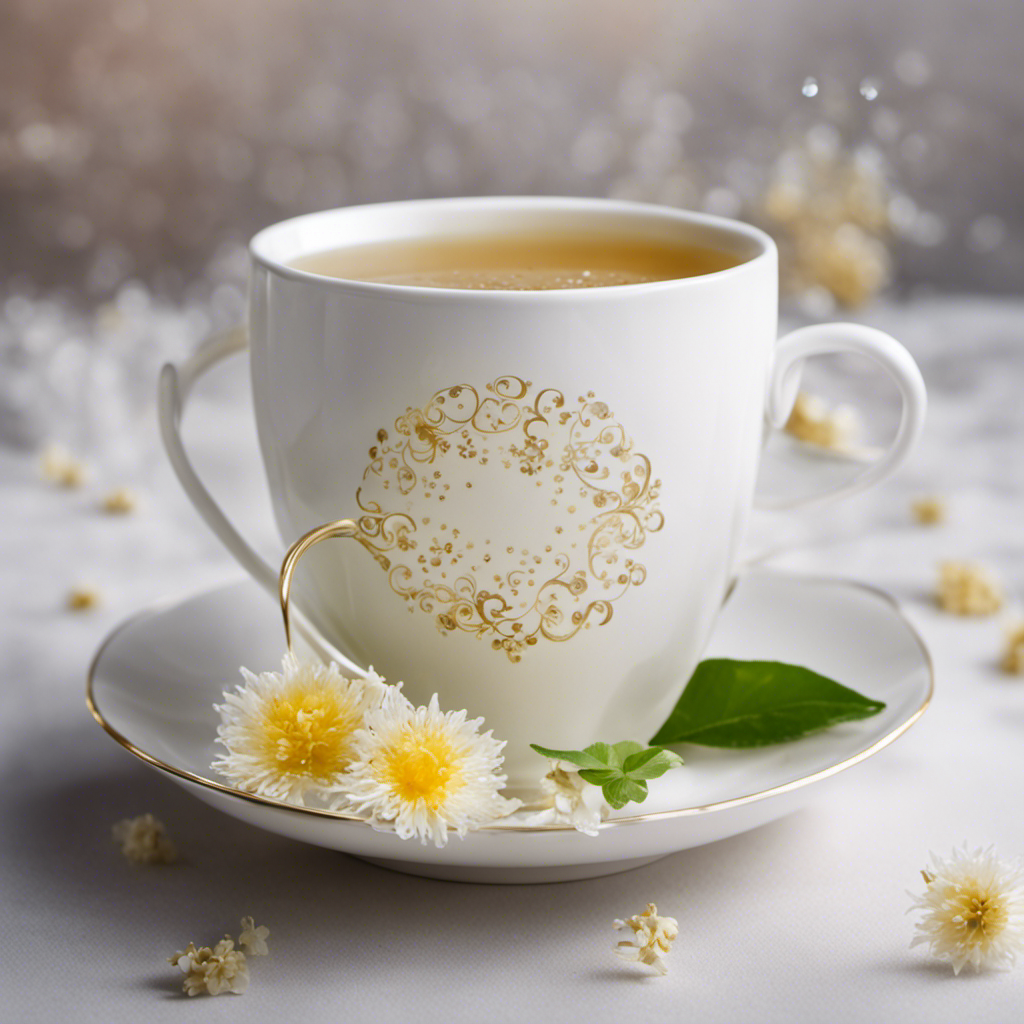Beginners Guides
Is Caffeine Addictive
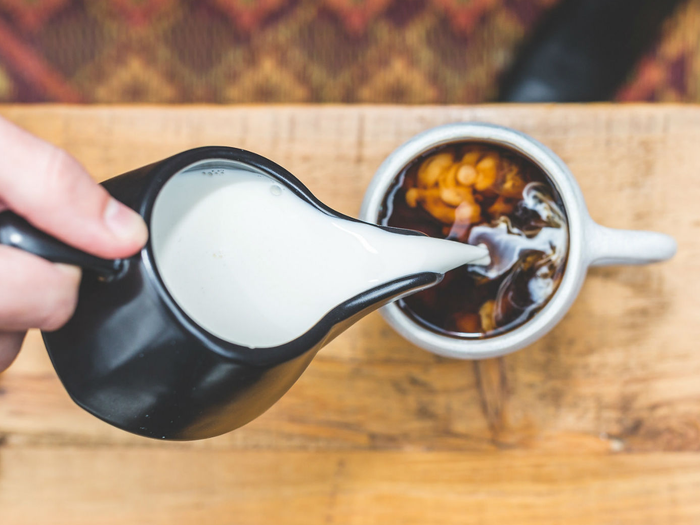
Did you know that 90% of adults consume caffeine regularly? As someone who relies on my daily coffee fix, I often wonder if caffeine is addictive.
In this article, I will explore the science behind caffeine addiction, its effects on the brain, and debunk common myths surrounding this topic.
Whether you’re curious or looking for ways to manage your caffeine consumption, join me as we delve into the fascinating world of caffeine addiction.
Key Takeaways
- Caffeine is a stimulant that affects the central nervous system.
- Genetic factors can influence caffeine addiction.
- Excessive caffeine consumption can disrupt sleep patterns.
- Gradually reducing caffeine intake can alleviate withdrawal discomfort.
The Science Behind Caffeine Addiction
I personally find the science behind caffeine addiction fascinating. Caffeine is a stimulant that affects the central nervous system, and its addictive properties have been the subject of much research.
One factor that influences caffeine addiction is caffeine metabolism. The speed at which our bodies break down and eliminate caffeine varies from person to person. Some individuals metabolize caffeine quickly, while others do so at a slower rate. This difference in metabolism can influence the addictive potential of caffeine, as those who metabolize it quickly may require higher doses to achieve the same effects.
Additionally, genetic factors can also play a role in caffeine addiction. Certain genes have been identified that may make individuals more susceptible to becoming dependent on caffeine.
Understanding these scientific aspects of caffeine addiction can help us better comprehend why some individuals may struggle with caffeine dependence while others do not.
Understanding the Effects of Caffeine on the Brain
Caffeine increases alertness and improves cognitive function, but it can also lead to jitters and disrupt sleep patterns. Understanding the impact of caffeine on sleep patterns is crucial, as it can have long-term effects on our overall health. Excessive consumption of caffeine, especially later in the day, can interfere with our ability to fall asleep and stay asleep throughout the night. This sleep disruption can lead to fatigue, mood disturbances, and even contribute to the development of sleep disorders. To better comprehend the relationship between caffeine and sleep, let’s take a look at the following table:
| Time of Consumption | Impact on Sleep |
|---|---|
| Morning | Minimal effect |
| Afternoon | Possible disruption |
| Evening | Significant disruption |
As we can see, consuming caffeine later in the day can have a significant impact on our sleep patterns. It is essential to consider these effects when deciding on our caffeine intake to ensure a good night’s sleep.
Now, let’s transition into discussing withdrawal symptoms and caffeine dependence.
Withdrawal Symptoms and Caffeine Dependence
Experiencing headaches is a common withdrawal symptom of caffeine dependence. When individuals abruptly stop consuming caffeine, their bodies may react with symptoms such as headaches, fatigue, irritability, and difficulty concentrating. These symptoms typically appear within 12 to 24 hours after the last caffeine intake and can last for several days.
To alleviate the discomfort of caffeine withdrawal, some remedies include gradually reducing caffeine intake, staying hydrated, getting enough sleep, and engaging in relaxation techniques.
It’s important to note that long-term effects of caffeine dependence can extend beyond withdrawal symptoms. Chronic caffeine use has been associated with increased heart rate, elevated blood pressure, and potential negative impacts on sleep quality. Understanding the potential consequences of caffeine dependence can help individuals make informed decisions about their caffeine consumption.
Transitioning into the next section, let’s now debunk some common myths about caffeine addiction.
Debunking Common Myths About Caffeine Addiction
Sometimes, people believe that caffeine addiction is only a myth, but in reality, it can have real effects on the body and mind. Contrary to common misconceptions, caffeine addiction is a real phenomenon that can lead to dependence and withdrawal symptoms.
Here are some important facts to consider:
-
Caffeine tolerance: Over time, regular caffeine consumption can lead to an increased tolerance. This means that you may need to consume more caffeine to achieve the same effects.
-
Withdrawal symptoms: When you abruptly stop consuming caffeine, you may experience withdrawal symptoms such as headaches, fatigue, irritability, and difficulty concentrating.
-
Physical and psychological effects: Caffeine addiction can affect both the body and mind. Physically, it can disrupt sleep patterns, cause digestive issues, and increase heart rate. Psychologically, it can lead to anxiety, restlessness, and mood swings.
-
Individual differences: The degree of caffeine addiction can vary from person to person. Some individuals may be more susceptible to developing an addiction due to genetic factors or personal sensitivity.
-
Treatment options: If you’re concerned about your caffeine consumption, there are treatment options available, such as gradually reducing your intake or seeking support from a healthcare professional.
Tips for Managing Caffeine Consumption and Breaking the Addiction
To break my caffeine addiction, I need to be mindful of my intake and gradually reduce it, but also find healthier alternatives for energy. Caffeine alternatives can provide a similar boost without the drawbacks.
One option is herbal teas like chamomile or peppermint, which can provide a calming effect. Another alternative is green tea, which contains lower levels of caffeine than coffee but still provides a gentle energy boost.
Additionally, incorporating exercise into my routine can naturally boost energy levels and reduce the need for caffeine. By reducing my caffeine intake, I can experience several benefits. These include improved sleep quality, reduced anxiety and jitters, and better hydration.
It’s important to understand that breaking a caffeine addiction takes time and patience, but the benefits of reduced consumption and healthier alternatives are worth it.
Frequently Asked Questions
How Long Does It Take for Caffeine to Leave the Body?
It typically takes about 5-6 hours for caffeine to leave the body. However, the duration of its effects can vary depending on individual factors. Withdrawal symptoms such as headaches may occur when caffeine is abruptly discontinued.
Can Caffeine Addiction Lead to Other Substance Addictions?
Caffeine addiction can potentially lead to other substance addictions. When someone develops a dependence on caffeine, they may experience withdrawal symptoms and increase their tolerance levels, making them more susceptible to seeking out other substances for a similar effect.
Is Decaffeinated Coffee Completely Caffeine-Free?
Decaffeinated coffee isn’t completely caffeine-free, but it has significantly less caffeine than regular coffee. The caffeine is removed through a process that involves water, organic solvents, or carbon dioxide.
Can Caffeine Addiction Affect Sleep Patterns?
Reducing caffeine intake can help improve sleep patterns. Caffeine affects cognitive function and can disrupt sleep. Strategies like gradually reducing consumption, avoiding caffeine close to bedtime, and replacing caffeinated drinks with alternatives can be effective in mitigating these effects.
Are There Any Health Risks Associated With Long-Term Caffeine Consumption?
Long-term caffeine consumption can have health risks, such as increased heart rate and blood pressure. Withdrawal symptoms, like headaches and irritability, may also occur. It’s important to be mindful of your caffeine intake and its potential effects.
Conclusion
In conclusion, while caffeine may not be classified as a traditional addictive substance, it does have the potential to create dependence and withdrawal symptoms in some individuals.
However, it’s important to keep in mind that caffeine addiction can be managed effectively through mindful consumption and gradual reduction.
Anticipating the objection that breaking the caffeine addiction is impossible, it’s worth noting that many people have successfully reduced their caffeine intake and experienced improved overall well-being.
Arf, an author and an innovative enthusiast of coffee, coffee alternatives, and tea, plays a crucial role as a contributor to the esteemed Cappuccino Oracle platform. Renowned for his curiosity and passion for these captivating beverages, Arf has carved out a unique space for himself in the world of exploration and writing. He realized that coffee, coffee alternatives, and tea are not mere drinks to keep one awake, but universes of flavors and stories waiting to be explored.
Arf’s articles for Cappuccino Oracle blend meticulous research with personal experiences, providing readers with an in-depth understanding of various types of coffee, coffee alternatives, and tea, along with their unique characteristics, cultures, and histories. His honest reviews and engaging narratives guide readers on their own journeys, helping them discover their preferences and find their perfect brew.
Beginners Guides
Achieving Consistent Extraction: The Power of Even Distribution

Did you know that maintaining consistent extraction plays a crucial role in creating top-notch coffee? A critical factor in achieving this uniformity is ensuring the even distribution of coffee grounds. If distribution is uneven, it can result in unbalanced flavors caused by over-extraction in certain areas and under-extraction in others.
Overcoming the challenges of clumping, poor distribution, and inconsistent grind is crucial for a delightful coffee experience. In this article, we will explore the Weiss Distribution Technique (WDT) and its benefits in promoting uniform distribution and minimizing channeling during espresso extraction.
Key Takeaways
- Uneven distribution leads to inconsistent extraction, with over-extraction in some parts and under-extraction in others.
- The Weiss Distribution Technique (WDT) improves the uniformity of coffee grounds distribution and minimizes channeling during espresso extraction.
- Implementing WDT involves stirring the coffee grounds in a circular motion, leveling the coffee bed, and tamping with even pressure.
- WDT offers advantages such as improved extraction consistency, uniform water flow, reduced channeling, and enhanced flavor and aroma.
The Importance of Even Distribution for Consistent Extraction
In the pursuit of consistent extraction, the importance lies in achieving an even distribution of coffee grounds throughout the portafilter. This is because uneven distribution can lead to inconsistent extraction, resulting in over-extraction in some areas and under-extraction in others. To achieve balanced flavors, every particle of coffee grounds must contribute equally to the flavor profile. The science behind even distribution in coffee extraction involves ensuring that water finds the path of least resistance, promoting an even flow through all the coffee grounds.
To achieve even distribution, there are practical tips that can be followed. Firstly, it is important to prevent clumping of the coffee grounds, as clumps can lead to uneven extraction. Secondly, proper distribution and tamping techniques can help prevent channeling, which is the uneven flow of water through the coffee bed. Additionally, using a consistent grind and mastering the technique can also contribute to achieving even distribution.
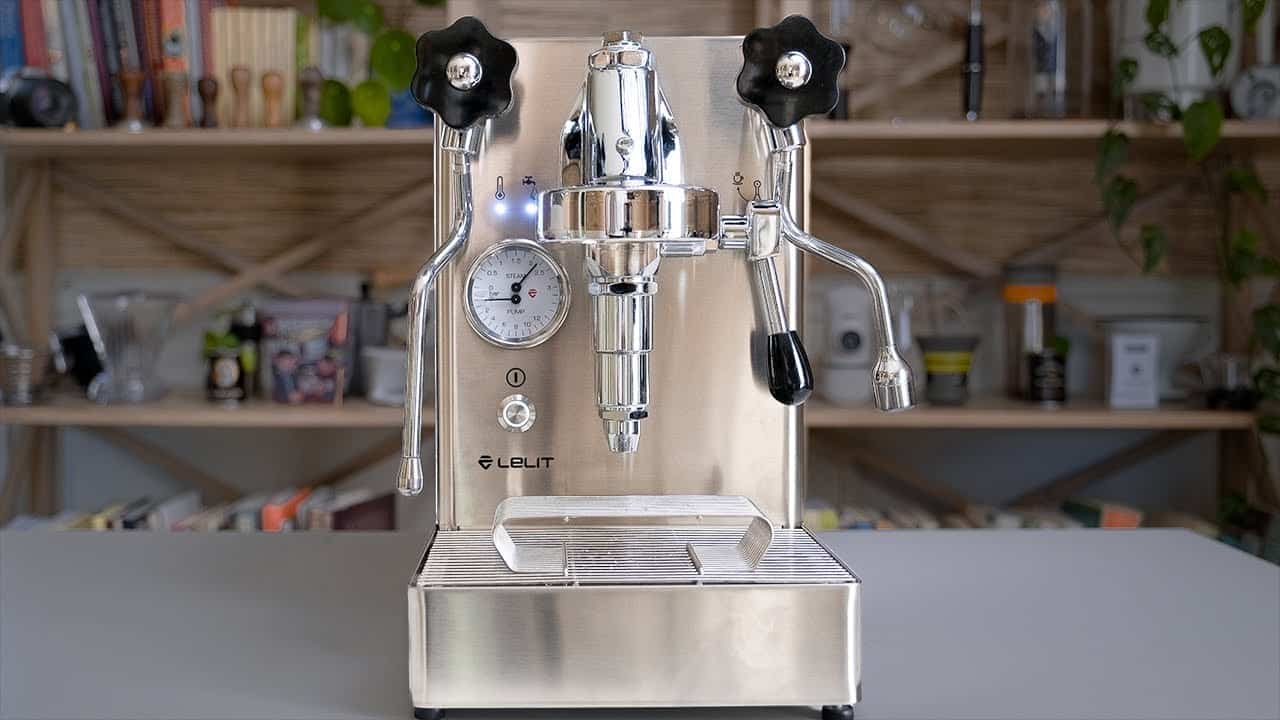
Challenges in Achieving Perfect Distribution
Achieving perfect distribution of coffee grounds poses several challenges in the pursuit of consistent extraction. These challenges include clumping of coffee grounds, channeling caused by poor distribution or tamping, inconsistent grind from different grinders, and the tricky technique for beginners.
Overcoming these distribution challenges is essential for a delightful coffee experience. Techniques for improving distribution consistency include the Weiss Distribution Technique (WDT), which was introduced by John Weiss. WDT improves the uniformity of coffee grounds distribution, minimizes channeling during espresso extraction, and promotes even water flow by using a thin tool to stir and redistribute grounds.
Other distribution methods such as Stockfleth’s method, tapping method, leveling tools, and shaking method are also compared, but the WDT stands out for its attention to detail and effectiveness in breaking up clumps.
The Weiss Distribution Technique (Wdt) and Its Benefits
One of the notable benefits of the Weiss Distribution Technique (WDT) is its ability to improve the uniformity and consistency of coffee grounds distribution during espresso extraction.

This technique, introduced by John Weiss, has gained traction among baristas and home brewers for its effectiveness in minimizing channeling and promoting even water flow. By using a thin tool to stir and redistribute the grounds, the WDT breaks up clumps and ensures that every particle contributes to the flavor equally.
The advantages of implementing the WDT include improved extraction consistency, reduced channeling, and enhanced flavor and aroma. For beginners using the WDT technique, it is recommended to start simple, focus on consistency, and document the process for refinement over time.
Incorporating the WDT with other techniques can also elevate the coffee quality.
History and Origin of WDT
Since its introduction by John Weiss, the Weiss Distribution Technique (WDT) has evolved from a simple and effective method to a recognized technique used by baristas and home brewers alike. Here is a brief history and origin of the WDT:

-
Online tip to recognized technique: Initially, the WDT gained traction on coffee forums and communities as an effective way to improve uniformity of coffee grounds distribution. It quickly transitioned from a mere online tip to a recognized technique due to its success in minimizing channeling during espresso extraction.
-
Name after its creator: The technique is named after its creator, John Weiss, who introduced it as a simple and effective method for achieving even distribution of coffee grounds.
-
Baristas and home brewers: Over time, the WDT technique has become widely adopted by baristas and home brewers alike. Its effectiveness in breaking up clumps and promoting even water flow has made it a popular choice among coffee enthusiasts.
-
Evolution of the WDT technique: As more people started using the WDT, it has undergone refinements and variations. Baristas and home brewers have experimented with different tools and techniques to further improve the distribution process.

Common misconceptions about WDT: Despite its proven effectiveness, some misconceptions surrounding the WDT technique still exist. These include the belief that it is a complicated and time-consuming process, or that it doesn’t make a noticeable difference in the final brew. However, with proper understanding and practice, the WDT can greatly contribute to achieving consistent extraction and a delicious cup of coffee.
Implementing the WDT: Step-by-Step Guide
To successfully implement the WDT technique, follow this step-by-step guide for achieving even distribution of coffee grounds.
-
First, ensure that the portafilter is clean and ready for use.
-
Next, dose the required amount of coffee into the portafilter basket.
-
Gently stir the coffee grounds in a circular motion using a thin tool, such as a paperclip or toothpick, to break up any clumps and promote uniform distribution.
-
Once the grounds are evenly distributed, level the coffee bed with a flat edge to create a consistent surface.
-
Finally, tamp the coffee with even pressure to further enhance the even distribution.
Frequently Asked Questions
What Are Some Common Misconceptions About Even Distribution in Coffee Extraction?
Common misconceptions about even distribution in coffee extraction include the belief that it is unnecessary or that it doesn’t significantly impact flavor. Techniques for even distribution, such as the Weiss Distribution Technique, are essential for consistent extraction and balanced flavors.
Can the Weiss Distribution Technique Be Used for Other Brewing Methods Besides Espresso?
The Weiss Distribution Technique (WDT) can be used for alternative brewing methods besides espresso. It promotes even extraction, resulting in enhanced flavor and aroma. Its benefits include improved consistency and reduced channeling.
How Does Clumping Affect the Extraction Process and Flavor of the Coffee?
Clumping in coffee grounds affects extraction consistency and flavor. Uneven distribution leads to over-extraction in some parts and under-extraction in others. Techniques like the Weiss Distribution Technique (WDT) improve consistency and enhance the overall coffee experience.
Are There Any Specific Tools or Equipment Required to Implement the Weiss Distribution Technique?
Specific tools for implementing the Weiss distribution technique include a thin tool for stirring and redistributing coffee grounds. Even distribution is crucial for consistent extraction, ensuring uniform water flow and enhanced flavor and aroma.
What Are Some Alternative Methods to Achieve Even Distribution in Coffee Extraction?
Alternative techniques to achieve even distribution in coffee extraction include Stockfleth’s method, tapping method, leveling tools, and shaking method. These methods aim to break up clumps and promote uniform water flow for improved extraction consistency and enhanced flavor.
Conclusion
In the quest for the perfect cup of coffee, achieving consistent extraction is paramount. Even distribution of coffee grounds is key to this process, ensuring that each particle contributes to the overall flavor.
The Weiss Distribution Technique (WDT) has emerged as a powerful method to overcome the challenges of clumping and channeling, promoting uniformity and enhancing the espresso extraction process.
With its history and origin explored, a step-by-step guide provided, and practical tips offered, the WDT proves to be a valuable tool in the pursuit of a delightful coffee experience.
In the vast and diverse world of coffee, coffee alternatives, and tea, Olivia has found her calling. As an author and a dedicated coffee and tea aficionado, her work for Cappuccino Oracle reflects her profound love and understanding of the intricate complexities found within these beverages. Olivia’s passion for the subject serves as both a catalyst for her creativity and a connection point with her audience.
Olivia’s appreciation for coffee, coffee alternatives, and tea blossomed at an early age. She discovered that these beverages invigorated her senses and stimulated her creative spirit. From the nuanced flavors of single-origin roasts to the captivating narratives intertwined with coffee, coffee alternatives, and tea trade and culture, Olivia found an unlimited source of inspiration in her daily cup.
Her love for these beverages and her talent for storytelling eventually converged at Cappuccino Oracle. As an author, Olivia’s mission is to illuminate the intricate tapestry that makes up the world of coffee, coffee alternatives, and tea. Her articles span a diverse range of topics, encompassing everything from the unique flavors of different brews to the sociocultural history intertwined with their cultivation and consumption.
Beginners Guides
How Does The Caffeine Content In Tea And Energy Drinks Affect The Body Differently

The adage ‘You are what you drink’ aptly applies, especially regarding caffeine. This natural stimulant present in tea and energy drinks significantly influences our physiology. However, have you considered the varying effects of caffeine levels in these drinks on our body?
In this article, we will delve into the fascinating world of caffeine and explore its effects on the body.
Firstly, we will examine the caffeine content in tea and energy drinks, comparing the two and highlighting any differences. We will then explore how caffeine is absorbed and metabolized by the body, shedding light on why we may experience varying effects.
From there, we will delve into the effects of caffeine on the brain and nervous system, as well as its influence on heart health. Additionally, we will explore the impact of caffeine on our sleep patterns and discuss personal factors that can affect our sensitivity to this powerful substance.
So grab a cup of tea or energy drink, and let’s dive into the stimulating world of caffeine.
Key Takeaways
- The caffeine content in tea and energy drinks can have different effects on the body.
- Tea typically contains lower levels of caffeine compared to energy drinks, which may result in milder stimulant effects.
- Energy drinks, with their higher caffeine content, may enhance exercise performance and reduce perceived exertion.
- Tea, being lower in caffeine, may have less impact on sleep patterns compared to energy drinks, which can disrupt sleep quality and duration.
Understanding Caffeine’s Effects on the Body
Understanding how caffeine affects the body differently in tea and energy drinks is crucial for comprehending the intricate ways in which these beverages impact our overall well-being.
Caffeine is a stimulant that affects the central nervous system, increasing mental alertness and reducing fatigue. When consumed before exercise, caffeine can improve performance by enhancing endurance, reducing perceived exertion, and increasing fat oxidation. Studies have shown that caffeine can also improve cognitive function, including attention, reaction time, and memory.
However, the effects of caffeine can vary depending on the source. Tea contains lower levels of caffeine compared to energy drinks, but it also contains other compounds like L-theanine, which may have calming effects.
Transitioning into the subsequent section about the caffeine content in tea, it is important to understand how these additional compounds in tea may influence the body differently.
The Caffeine Content in Tea
To truly grasp the impact, imagine how that invigorating cup of tea you enjoy every morning sends a jolt of energy coursing through your veins, making you feel more alive than ever. When it comes to caffeine content, tea usually contains less caffeine than coffee, but the exact amount can vary depending on the type of tea.
Here are three examples:
- Green tea: Contains around 20-45 mg of caffeine per 8-ounce serving.
- Black tea: Typically has 40-70 mg of caffeine per 8-ounce serving.
- Herbal tea: Usually caffeine-free, but some varieties like yerba mate may contain small amounts.
Knowing the caffeine levels in different types of tea can help you make informed choices about your daily caffeine intake.
Now, let’s delve into the caffeine content in energy drinks.
The Caffeine Content in Energy Drinks
Imagine the electrifying surge of energy that rushes through you with every sip of those fizzy, vibrant drinks you can’t resist. Energy drinks are known for their high caffeine content, which is one of the main ingredients that gives you that instant boost.
In fact, energy drinks typically contain much higher levels of caffeine compared to tea. While a cup of tea usually contains around 30-50 milligrams of caffeine, energy drinks can have anywhere from 80 to 300 milligrams per serving.
Such high levels of caffeine in energy drinks can potentially lead to caffeine overdose if consumed excessively. It is important to be mindful of your caffeine intake and not exceed the recommended limits.
Now, let’s delve into the absorption and metabolism of caffeine, and how it affects our bodies.
Absorption and Metabolism of Caffeine
The electrifying surge of energy you feel after consuming energy drinks is due to the rapid absorption and metabolism of caffeine in your body.
When you drink an energy drink, the caffeine is quickly absorbed into your bloodstream through the lining of your stomach and small intestine. From there, it is transported to your liver, where it undergoes various metabolic pathways. One of these pathways involves the enzyme cytochrome P450 1A2, which breaks down caffeine into three primary metabolites: paraxanthine, theobromine, and theophylline.
Each of these metabolites has its own effects on the body, contributing to the overall physiological response to caffeine. The absorption rate and metabolism of caffeine can vary from person to person, depending on factors such as age, genetics, and liver function.
Understanding how caffeine is absorbed and metabolized is crucial in understanding its effects on the brain and nervous system.
Effects of Caffeine on the Brain and Nervous System
Get ready to experience a surge of energy as caffeine zips through your bloodstream, activating your brain and nervous system. Caffeine has profound effects on memory and cognitive function, enhancing alertness and improving attention span. Studies have shown that it can enhance short-term memory and improve overall cognitive performance. However, excessive caffeine consumption may lead to anxiety and restlessness, as it stimulates the release of adrenaline, a hormone that triggers the body’s "fight or flight" response. In addition, caffeine can also affect mood by increasing dopamine levels, which can improve feelings of well-being and happiness. Nevertheless, it’s important to note that individual responses to caffeine vary, and excessive consumption can lead to negative effects such as jitteriness and insomnia. Transitioning into the subsequent section about the ‘impact on heart health’, caffeine not only affects the brain, but also has implications for cardiovascular health.
Impact on Heart Health
When it comes to the impact of caffeine on heart health, it’s important to consider its effect on heart rate and blood pressure. Caffeine has been shown to temporarily increase both heart rate and blood pressure, which can be concerning for individuals with pre-existing cardiovascular conditions.
Additionally, long-term consumption of caffeine has been associated with an increased risk of cardiovascular issues, such as heart disease and hypertension. These findings highlight the need for moderation and awareness when it comes to caffeine intake and its potential impact on our heart health.
Caffeine’s Effect on Heart Rate and Blood Pressure
Contrarily, sipping on a cup of tea or chugging an energy drink can have contrasting effects on your heart rate and blood pressure. While both tea and energy drinks contain caffeine, their effects on the cardiovascular system differ. Here are five key points to consider:
Tea has a moderate amount of caffeine, which can slightly increase heart rate and blood pressure. However, these effects are usually short-lived and not significant enough to cause concern.
Energy drinks, on the other hand, often contain high levels of caffeine, which can lead to a more pronounced increase in heart rate and blood pressure. This can be especially problematic for individuals with underlying heart conditions.
Caffeine’s impact on exercise performance varies. Some studies suggest that moderate caffeine consumption can enhance endurance and performance, while excessive intake may lead to negative effects.
Tea is a hydrating beverage, contributing to overall hydration levels. Energy drinks, due to their caffeine content, can have a diuretic effect, potentially increasing the risk of dehydration.
Considering the long-term effects on cardiovascular health, excessive consumption of energy drinks, with their high caffeine content and added ingredients, may pose a greater risk compared to moderate tea consumption.
With these considerations in mind, let’s explore the long-term effects on cardiovascular health.
Long-Term Effects on Cardiovascular Health
The long-term impact of regular consumption of caffeine-containing beverages on cardiovascular health is worth exploring. Research suggests that excessive intake of caffeine can have adverse effects on the cardiovascular system. Studies have shown that long-term consumption of high doses of caffeine can lead to increased risk of cardiovascular diseases such as hypertension, heart rhythm disorders, and even heart attacks. Additionally, caffeine has been found to have negative effects on cognitive function in the long term. It can impair memory, attention, and overall cognitive performance. On the other hand, caffeine has been shown to have a positive impact on exercise performance. It can enhance endurance, reduce perceived exertion, and improve overall athletic performance. These findings highlight the importance of moderation when consuming caffeine-containing beverages for long-term cardiovascular health and cognitive function. Moving on to the next section, let’s explore caffeine’s influence on sleep patterns.
Caffeine’s Influence on Sleep Patterns
Caffeine’s impact on sleep patterns can disrupt the body’s natural rhythm and lead to restless nights. Research shows that consuming caffeine, whether from tea or energy drinks, can affect the quality and quantity of sleep.
Caffeine’s influence on cognitive function is well-documented, with studies suggesting that it can improve alertness and concentration. However, when it comes to sleep, caffeine acts as a stimulant that can delay the onset of sleep and reduce overall sleep duration. This can have significant implications on athletic performance, as sleep is crucial for recovery and optimal physical functioning.
It’s important to note that individual sensitivity to caffeine varies, with some people being more affected by its sleep-disrupting effects than others. Transitioning into the next section, personal factors and sensitivity to caffeine play a role in determining how individuals respond to its effects without needing to take a step.
Personal Factors and Sensitivity to Caffeine
When it comes to caffeine, everyone is different in terms of their tolerance and sensitivity. Some people may be able to handle large amounts of caffeine without feeling any negative effects, while others may be more sensitive and experience jitters, anxiety, or trouble sleeping even with small amounts.
These individual differences in caffeine sensitivity can be influenced by various factors, including genetics. Research has shown that certain genetic variations can affect how our bodies process and metabolize caffeine, which can ultimately impact our response to it.
Individual Tolerance and Sensitivity
Feeling tired? Did you know that your individual tolerance and sensitivity can determine how caffeine affects your body differently in tea and energy drinks? Everyone has a unique response to caffeine based on their individual tolerance and sensitivity levels. Some people may be more sensitive to caffeine and experience its effects more strongly, while others may have a higher tolerance and not feel the same impact. Factors such as age, weight, metabolism, and overall health can influence individual tolerance and sensitivity. Understanding your own caffeine tolerance can help you make informed decisions about consuming tea or energy drinks.
In the next section, we’ll explore how genetic variations in caffeine processing can also play a role in how our bodies react to caffeine.
Genetic Variations in Caffeine Processing
Genetic variations can play a role in how our bodies react to caffeine, but how exactly do these variations impact our response? Well, when it comes to caffeine metabolism, certain genetic variations can affect how quickly or slowly our bodies break down and eliminate caffeine. This can ultimately influence our sensitivity to caffeine and how it affects us.
One key genetic variation that has been studied is in the gene CYP1A2, which is involved in caffeine metabolism. People with certain variations in this gene may metabolize caffeine more slowly, leading to higher levels of caffeine in their system and potentially increased sensitivity to its effects. On the other hand, individuals with faster caffeine metabolism may experience a reduced sensitivity to caffeine.
To illustrate the potential impact of genetic variations on caffeine metabolism, consider the following table:
| Genotype | Caffeine Metabolism Speed | Caffeine Sensitivity |
|---|---|---|
| Slow metabolizer | Slow | Increased |
| Fast metabolizer | Fast | Reduced |
This table demonstrates the potential relationship between genetic variations in caffeine metabolism, caffeine sensitivity, and the speed at which caffeine is broken down in the body. While genetic variations are just one piece of the puzzle, they can contribute to individual differences in how caffeine affects us.
Frequently Asked Questions
Can caffeine in tea and energy drinks cause dehydration?
Yes, caffeine in tea and energy drinks can cause dehydration. It acts as a diuretic, increasing urine production. This can lead to fluid loss and potentially impact cognitive function and sleep quality.
Is it true that caffeine can enhance athletic performance?
Yes, it is true that caffeine can enhance athletic performance. Caffeine increases caffeine metabolism, which can lead to improved endurance and reduced fatigue. It also has stimulant effects that can increase heart rate during exercise.
Are there any long-term effects of consuming high levels of caffeine?
Consuming high levels of caffeine can have long-term health risks such as heart problems and addiction. Additionally, it can negatively impact sleep quality, leading to insomnia and restlessness.
Does the caffeine content in tea and energy drinks affect weight loss or weight gain?
The caffeine content in tea and energy drinks can affect weight loss or weight gain. It can enhance metabolism and increase calorie burning, potentially aiding in weight management. However, other factors such as diet and exercise also play a crucial role.
Can caffeine withdrawal symptoms occur when reducing or stopping the consumption of tea and energy drinks?
Experiencing caffeine withdrawal symptoms, like headaches and fatigue, is common when reducing or stopping the consumption of tea and energy drinks. These symptoms can also disrupt sleep quality, making it harder to get a good night’s rest.
Conclusion
In conclusion, the caffeine content in tea and energy drinks affects the body differently based on factors such as absorption, metabolism, and individual sensitivity.
While both beverages contain caffeine, the higher levels found in energy drinks can lead to increased alertness and energy levels. On the other hand, the lower caffeine content in tea allows for a more gradual and sustained release of energy.
For instance, a case study conducted on individuals who consumed energy drinks showed a significant increase in heart rate and blood pressure, while those who consumed tea experienced a more moderate and manageable effect on their cardiovascular system.
Arf, an author and an innovative enthusiast of coffee, coffee alternatives, and tea, plays a crucial role as a contributor to the esteemed Cappuccino Oracle platform. Renowned for his curiosity and passion for these captivating beverages, Arf has carved out a unique space for himself in the world of exploration and writing. He realized that coffee, coffee alternatives, and tea are not mere drinks to keep one awake, but universes of flavors and stories waiting to be explored.
Arf’s articles for Cappuccino Oracle blend meticulous research with personal experiences, providing readers with an in-depth understanding of various types of coffee, coffee alternatives, and tea, along with their unique characteristics, cultures, and histories. His honest reviews and engaging narratives guide readers on their own journeys, helping them discover their preferences and find their perfect brew.
Beginners Guides
How Does The Caffeine Content In Tea Change With Different Brewing Methods

Sitting here, enjoying my warm tea, I find myself curious about how the caffeine levels in my drink alter with various brewing techniques. It’s intriguing to consider that just altering the way we make our tea could significantly change the caffeine content we ingest.
In this article, we will delve into the world of tea and explore how different brewing techniques can alter the caffeine levels in our favorite beverage.
Tea, as we know, contains caffeine, a natural stimulant that gives us that much-needed energy boost. But did you know that the amount of caffeine extracted from tea leaves can vary depending on factors such as steeping time, water temperature, and even the type of tea?
By understanding these variables and their effects on caffeine extraction, we can gain insight into how to control our caffeine intake and tailor our tea-drinking experience to our preferences.
So, let’s embark on this scientific journey together, as we uncover the secrets behind the caffeine content in tea and discover how different brewing methods can influence it.
Key Takeaways
- Different brewing methods can significantly impact the caffeine content in tea.
- Longer brewing time and hotter water tend to increase the caffeine content in tea.
- Shorter brewing time and cooler water can help reduce the amount of caffeine in tea.
- Herbal teas, such as chamomile and peppermint, are caffeine-free alternatives to traditional tea.
Understanding Caffeine in Tea
If you want to fully understand the caffeine content in tea, you’ll have to delve into the intricate relationship between brewing methods and the resulting levels of this stimulating compound.
The amount of caffeine in tea can vary depending on several factors, including the type of tea leaves used, the brewing time, and the water temperature. Caffeine metabolism also plays a role, as individuals with a higher metabolism may process caffeine more quickly than others. Additionally, caffeine sensitivity varies among individuals, with some people being more sensitive to its effects than others.
Scientific studies have shown that brewing methods such as steeping time and water temperature can significantly impact the caffeine content in tea. These factors affect the extraction process and can result in higher or lower caffeine levels.
Transitioning to the next section, let’s explore the impact of different brewing methods on caffeine content in tea.
Impact of Different Brewing Methods
Surprisingly, the way you brew your tea can have a significant effect on the amount of caffeine it ends up containing. Temperature control and brewing time variations play a crucial role in determining the caffeine content in your cup of tea.
When it comes to temperature, higher temperatures generally result in more caffeine extraction. For example, using boiling water can lead to a greater release of caffeine compared to using lower temperatures.
Similarly, brewing time also affects caffeine extraction. Longer brewing times tend to extract more caffeine from the tea leaves, while shorter brewing times result in lower caffeine content.
Understanding these factors and their impact on caffeine extraction is essential for controlling the caffeine levels in your tea. Transitioning into the subsequent section about ‘factors affecting caffeine extraction’, it is important to consider other variables that influence this process.
Factors Affecting Caffeine Extraction
To truly understand the factors that impact the extraction of caffeine, you must delve into the intricacies of your brewing process. Two key factors that affect caffeine extraction in tea are temperature and steeping time.
The temperature of the water used for brewing has a significant effect on the amount of caffeine extracted. Higher temperatures tend to extract more caffeine, while lower temperatures extract less.
Additionally, the length of time the tea leaves are steeped in hot water also influences caffeine extraction. Longer steeping times generally result in higher caffeine content.
These effects of temperature and steeping time on caffeine extraction can vary depending on the type of tea and its specific characteristics.
Moving forward to the subsequent section about caffeine content in black tea, we can explore how these factors play a role in determining its caffeine levels.
Caffeine Content in Black Tea
Black tea, known as the energizing elixir, holds within its depths the secrets of a stimulating experience. When it comes to caffeine extraction in black tea, the brewing method plays a crucial role in determining the caffeine content. Different tea varieties also have varying levels of caffeine. To understand this better, let’s take a look at the table below:
| Tea Variety | Caffeine Content (mg) |
|---|---|
| Assam | 50-90 |
| Darjeeling | 30-70 |
| Earl Grey | 20-60 |
| English Breakfast | 40-80 |
| Ceylon | 30-60 |
As we can see, the caffeine content in black tea can range from 20 to 90 mg, depending on the variety and brewing method. This information is important for those who want to control their caffeine intake or prefer a milder or stronger cup of tea. Moving on to green tea, a popular alternative to black tea, we will explore how its caffeine content compares in the next section.
Caffeine Content in Green Tea
With its refreshing and invigorating properties, green tea offers a delightful alternative to black tea that’ll leave you feeling rejuvenated. Green tea is known for its numerous health benefits, including its high antioxidant content and potential to aid in weight loss.
When it comes to caffeine content, green tea generally contains less caffeine than black tea. However, the levels of caffeine in green tea can vary depending on factors such as the type of green tea leaves used and the brewing method employed. Some studies suggest that consuming green tea can promote weight loss by increasing metabolism and fat oxidation.
While green tea may contain less caffeine than black tea, it still provides a gentle energy boost.
Moving on to the subsequent section about caffeine content in white tea, we’ll explore another intriguing aspect of tea brewing.
Caffeine Content in White Tea
You’ll be surprised to find that white tea packs a punch with its subtle but energizing qualities, making it a perfect choice for those seeking a milder caffeine boost. When it comes to caffeine extraction techniques, white tea differs from green tea. White tea is made from the young buds and leaves of the Camellia sinensis plant, which undergo minimal processing. This minimal processing allows for a higher retention of caffeine compared to other types of tea. Additionally, the caffeine content in white tea can be affected by steeping time. Studies have shown that longer steeping times can lead to higher caffeine extraction from white tea leaves. To better understand this, refer to the table below which showcases the caffeine content in white tea at different steeping times:
| Steeping Time (minutes) | Caffeine Content (mg) |
|---|---|
| 1 | 15 |
| 2 | 25 |
| 3 | 35 |
| 4 | 45 |
| 5 | 55 |
Considering the caffeine extraction techniques and the effect of steeping time on caffeine content, it is evident that white tea offers a range of caffeine levels depending on personal preference. Moving forward, let’s explore the caffeine content in herbal tea.
Caffeine Content in Herbal Tea
Discover the invigorating world of herbal tea and experience the delightful array of flavors that can be enjoyed without worrying about the impact of caffeine on your system.
Herbal teas are naturally caffeine-free, making them an excellent choice for those looking to avoid the stimulating effects of caffeine. While the benefits of caffeine in tea include improved focus and increased energy, some individuals may be sensitive to its effects or prefer to limit their intake.
Fortunately, there are numerous decaffeinated herbal tea options available that allow you to enjoy the soothing qualities of tea without the caffeine. These teas are often made from herbs and botanicals that offer their own unique health benefits.
So, if you’re looking for a caffeine-free alternative to traditional teas, explore the world of herbal teas and discover a variety of flavors that can enhance your well-being.
Transitioning into the subsequent section about ‘tips for controlling caffeine intake,’ it’s important to be aware of the different brewing methods that can affect the caffeine content in tea.
Tips for Controlling Caffeine Intake
If you thought controlling your caffeine intake was an easy task, think again – there’s a whole world of unexpected ways to unintentionally consume more caffeine than you realize. When it comes to managing caffeine levels, there are a few tips that can help you stay in control.
First, be aware of the brewing time and temperature when making tea. The longer the brewing time and the hotter the water, the higher the caffeine content will be. So, if you’re looking to reduce your caffeine intake, consider brewing your tea for a shorter period of time and using slightly cooler water.
Additionally, if you’re looking for alternatives to tea, there are several options available. Herbal teas, such as chamomile or peppermint, are naturally caffeine-free and can be a great choice for those looking to reduce their caffeine intake. Other alternatives include decaffeinated tea or non-caffeinated beverages like herbal infusions or fruit juices.
By being mindful of your brewing methods and exploring alternative options, you can effectively manage your caffeine intake.
Frequently Asked Questions
Can the caffeine content in tea vary depending on the brand or type of tea?
Yes, the caffeine content in tea can vary depending on the brand or type of tea. Different brands and types of tea have different levels of caffeine due to variations in processing and growing conditions. Additionally, brewing techniques can also affect the caffeine content in tea.
Are there any health benefits associated with consuming caffeine in tea?
There are potential health benefits associated with consuming caffeine in tea. However, it is important to consider the recommended daily intake and potential risks, as excessive caffeine consumption can lead to negative effects on health.
Does the temperature of the water used for brewing tea affect the caffeine content?
Water temperature significantly affects the extraction of compounds in tea. Higher temperatures release more caffeine and other flavor compounds, resulting in a stronger and more robust flavor. Lower temperatures produce a more delicate and milder flavor.
Can the length of time tea is brewed impact the amount of caffeine extracted?
The length of time tea is brewed can have an impact on the amount of caffeine extracted. Studies suggest that longer brewing times result in higher caffeine content. However, the optimal brewing time for maximum caffeine content varies depending on the type of tea.
Is it possible to completely remove caffeine from tea through various brewing methods?
Removing caffeine from tea is possible through various brewing methods, such as using solvents or carbon dioxide. These methods extract caffeine while preserving the flavor of the tea. However, the effectiveness of decaffeination varies depending on the technique used.
Conclusion
In conclusion, it’s evident that the caffeine content in tea is greatly influenced by various brewing methods. Through careful examination and analysis, it’s clear that factors such as temperature, steeping time, and tea type all play a significant role in the extraction of caffeine.
Whether you prefer a bold black tea or a soothing herbal blend, understanding the caffeine content can help you make informed choices. So next time you brew a cup of tea, remember to take into account these factors to control your caffeine intake.
Knowledge is power, and with this knowledge, you can truly savor your cup of tea.
Arf, an author and an innovative enthusiast of coffee, coffee alternatives, and tea, plays a crucial role as a contributor to the esteemed Cappuccino Oracle platform. Renowned for his curiosity and passion for these captivating beverages, Arf has carved out a unique space for himself in the world of exploration and writing. He realized that coffee, coffee alternatives, and tea are not mere drinks to keep one awake, but universes of flavors and stories waiting to be explored.
Arf’s articles for Cappuccino Oracle blend meticulous research with personal experiences, providing readers with an in-depth understanding of various types of coffee, coffee alternatives, and tea, along with their unique characteristics, cultures, and histories. His honest reviews and engaging narratives guide readers on their own journeys, helping them discover their preferences and find their perfect brew.
-

 Americano4 weeks ago
Americano4 weeks agoHow to Make Americano With Moka Pot
-

 Americano2 weeks ago
Americano2 weeks agoHow to Make Korean Iced Americano
-

 Americano4 weeks ago
Americano4 weeks agoHow to Make Iced Americano With Instant Coffee
-

 Americano4 weeks ago
Americano4 weeks agoHow to Make Americano With Bialetti
-

 Americano4 weeks ago
Americano4 weeks agoHow to Make Dutch Bros Americano
-

 Americano6 days ago
Americano6 days agoHow to Make an Iced Americano With Nespresso
-

 Americano2 weeks ago
Americano2 weeks agoHow Many Shots of Espresso for 16 Oz Americano
-

 Turmeric Tea1 week ago
Turmeric Tea1 week agoTurmeric Saffron Tea







